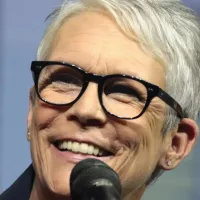The Organisation for Economic Co-operation and Development (OECD) is an intergovernmental organization established in 1961 with 38 member countries. It serves as a forum for nations committed to democracy and market economies. The OECD facilitates the comparison of policy experiences, the identification of best practices, and the coordination of domestic and international policies among its members. Its primary goal is to stimulate economic progress and world trade by providing a platform for collaborative problem-solving and policy development.
1947: OECD Library & Archives Collection Dates From 1947
The OECD Library & Archives collection dates from 1947, including records from the Committee for European Economic Co-operation (CEEC) and the Organisation for European Economic Co-operation (OEEC), predecessors of today's OECD.
April 1948: Establishment of the OEEC
In April 1948, the Organisation for European Economic Co-operation (OEEC) was established among European recipients of Marshall Plan aid for the reconstruction of Europe after World War II.
1952: OEEC Focuses on Economic Issues After Marshall Aid Ends
In 1952, following the end of Marshall aid, the OEEC shifted its focus to economic issues.
1954: Dissolution of Free Territory of Trieste's OEEC Membership
In 1954, the Free Territory of Trieste (Zone A) ceased to exist as an independent territorial entity after merging with Italy, ending its membership in the OEEC.
1955: René Sergent becomes Secretary-General of OEEC
In 1955, René Sergent became the Secretary-General of the Organisation for European Economic Co-operation (OEEC), succeeding Robert Marjolin.
1957: Rome Treaties Challenge OEEC's Coordinating Role
In 1957, the Rome Treaties establishing the European Economic Community and Euratom challenged the OEEC's coordinating role.
1958: European Nuclear Energy Agency Set Up
In 1958, the European Nuclear Energy Agency was established in response to Euratom within the framework of the OEEC.
December 1960: Convention on the OECD Signed
On 14 December 1960, the Convention on the Organisation for Economic Co-operation and Development was signed.
1960: René Sergent's tenure as Secretary-General of OEEC ends
In 1960, René Sergent's tenure as Secretary-General of the Organisation for European Economic Co-operation (OEEC) came to an end.
September 1961: OECD Officially Supersedes OEEC
In September 1961, the OECD officially superseded the OEEC, consisting of the European founder countries of the OEEC, with the additions of the United States and Canada.
1961: OECD Development Centre Established
In 1961, the OECD Development Centre was established.
1961: OECD founded
In 1961, the Organisation for Economic Co-operation and Development (OECD) was founded with 38 member countries to stimulate economic progress and world trade.
1962: OECD Observer Magazine Launched
In 1962, OECD Observer, an award-winning magazine, was launched.
1974: International Energy Agency (IEA) Established
In 1974, the International Energy Agency (IEA) was established by the OECD.
1989: OECD Assists Central European Countries
Following the Revolutions of 1989, the OECD began assisting countries in Central Europe to prepare market economy reforms.
October 1990: East Germany Joins OECD
On 3 October 1990, East Germany joined the OECD through reunification with West Germany.
1990: Centre for Co-operation with European Economies in Transition Established
In 1990, the Centre for Co-operation with European Economies in Transition was established by the OECD.
1991: "Partners in Transition" Programme Launched
In 1991, the OECD launched the "Partners in Transition" program to offer a partnership to Czechoslovakia, Hungary and Poland, including a membership option.
1992: Kumiharu Shigehara Becomes OECD Chief Economist
In 1992, Kumiharu Shigehara became OECD Chief Economist and Head of Economics Department.
1995: OECD Publishes Transfer Pricing Guidelines
Since 1995, the OECD has published and updated the Transfer Pricing Guidelines which serve as a template for the profit allocation of inter-company transactions to countries.
1996: Donald Johnston Becomes OECD Secretary-General
From 1996 to 2006, Donald Johnston was OECD Secretary-General.
1996: Estonia, Latvia and Lithuania show willingness to become OECD members
In 1996, Estonia, Latvia, and Lithuania signed a Joint Declaration expressing their willingness to become members of the OECD, and Slovenia also applied for membership that same year.
1996: Kumiharu Shigehara Publishes on Multilateral Surveillance
In 1996, Kumiharu Shigehara's "Multilateral Surveillance: What the OECD can offer?" was published, coinciding with his role as OECD Chief Economist and Head of Economics Department (1992–1997).
1997: Kumiharu Shigehara Becomes OECD Deputy Secretary-General
From 1997 to 1999, Kumiharu Shigehara was OECD Deputy Secretary-General.
1997: Cost of OECD Membership
In 1997, Pierre Vinde estimated that the cost borne by member countries for sending officials to OECD meetings and maintaining delegations equaled the secretariat's running costs.
1998: OECD iLibrary Launched
Since 1998, all OECD titles and databases published can be accessed via OECD iLibrary.
1999: Kumiharu Shigehara's Tenure as OECD Deputy Secretary-General Ends
From 1997 to 1999, Kumiharu Shigehara was OECD Deputy Secretary-General, ending his tenure in 1999.
2000: South Korea and Mexico Become OECD Members
Between 1996 and 2000, South Korea and Mexico became members of the OECD.
May 2004: Recommendations presented at the OECD Ministerial Council Meeting
On 13 May 2004, the recommendations of the working group to work out a plan for the enlargement with non-members were presented at the OECD Ministerial Council Meeting.
2006: Donald Johnston's Tenure as OECD Secretary-General Ends
From 1996 to 2006, Donald Johnston was OECD Secretary-General, ending his tenure in 2006.
May 2007: OECD Opens Accession Negotiations with Russia
In May 2007, the OECD decided to open accession negotiations with Russia.
March 2008: OECD Environmental Outlook to 2030 Published
In March 2008, the OECD published the OECD Environmental Outlook to 2030, arguing that tackling key environmental problems is both achievable and affordable.
2010: OECD Observer Frequency Changes
In 2010, the OECD Observer magazine appeared six times a year, changing frequency.
2011: OECD Yearbook Introduced
In 2011, the OECD Yearbook was launched for the 50th anniversary of the organization, and the OECD Observer magazine became quarterly.
September 2012: Bulgaria confirms it will apply for OECD membership
In September 2012, the government of Bulgaria confirmed it would apply for membership before the OECD Secretariat.
2013: OECD Decides to Open Membership Talks with Colombia and Latvia
In 2013, the OECD decided to open membership talks with Colombia and Latvia.
2013: OECD Observer Crossword Introduced
In Q2 2013, an OECD Observer Crossword was introduced in the OECD Observer magazine.
March 2014: OECD Halts Membership Talks with Russia
In March 2014, the OECD halted membership talks with Russia due to its role in the Crimean annexation and human rights abuses.
July 2014: OECD Data Portal Publicly Released
In July 2014, the OECD publicly released its main statistical databases through the OECD Data Portal, an online platform.
2015: OECD Opens Talks with Costa Rica and Lithuania
In 2015, the Organisation opened talks with Costa Rica and Lithuania.
July 2016: Latvia Becomes a Member of the OECD
On 1 July 2016, Latvia became a member of the OECD.
2017: OECD Member Countries' Share of Global GDP
As of 2017, OECD Member countries collectively comprised 62.2% of global nominal GDP (USD 49.6 trillion) and 42.8% of global GDP (Int$54.2 trillion) at purchasing power parity.
May 2018: Colombia Signs OECD Accession Agreement
On 30 May 2018, Colombia signed the accession agreement to become a member of the OECD.
July 2018: Lithuania Becomes a Member of the OECD
On 5 July 2018, Lithuania became a member of the OECD.
February 2019: Donald Johnston Notes the Importance of Shigehara's Book
In a letter of 5 February 2019, Donald Johnston, OECD Secretary-General (1996–2006), noted that Shigehara's "book is very important for the OECD where there is little living institutional memory".
2019: Last Issue of OECD Observer
The OECD Observer was last issued in the fourth quarter of 2019, with a double edition looking ahead at artificial intelligence.
April 2020: Colombia Becomes a Member of the OECD
On 28 April 2020, Colombia became a member of the OECD.
May 2020: OECD Extends Invitation to Costa Rica to Join
On 15 May 2020, the OECD decided to extend a formal invitation for Costa Rica to join the OECD.
2020: OECD Receives Inaugural University Press Redux Sustainability Award
In 2020, the inaugural University Press Redux Sustainability Award was given to OECD for the development of the SDG Pathfinder, an open-access digital discovery tool.
January 2021: OECD Membership and Dependent Territories
In January 2021, the Dutch Caribbean, Guernsey, Jersey, the Isle of Man, Gibraltar, and Bermuda were included in the OECD memberships of the Netherlands and the U.K., as dependent territories of member states.
2021: OECD Observer Website Closed
In the first quarter of 2021, the OECD Observer website closed; the archive can be consulted at www.oecd.org.
March 2022: Belarus Suspended from OECD Participation
In March 2022, Belarus was suspended from all participation in the OECD.
June 2022: Roadmaps for Accession to the OECD Convention Adopted
In June 2022, during the annual OECD Ministerial Council Meeting, the Roadmaps for the Accession to the OECD Convention for Brazil, Bulgaria, Croatia, Peru and Romania were adopted.
2023: OECD Budget and Revenue
In 2023, the OECD operated on a two-year budget determined by member countries, with annual revenues exceeding €900 million during the 2023–2024 reporting period.
July 2024: OECD Transitions to Open-Access Information Model
In July 2024, the OECD announced that it "has transitioned to [an] open-access information model" and that Creative Commons CC‑BY‑4.0 attribution licenses will be used on all data and publications.
July 2024: Roadmaps for Accession Adopted with Thailand
In July 2024, the Roadmaps for the Accession to the OECD were adopted with Thailand.
2024: OECD Collective Population and Economic Status
As of 2024, the collective population of OECD member countries is 1.38 billion people with an average life expectancy of 80 years and a median age of 40.
2024: OECD Part I Budget Contributions
In 2024, assessed contributions to the "Part I Budget" totalled an estimated 229.9 million EUR, representing the largest single source of revenue for the OECD, based on the number of OECD members and their national economies' sizes.
2024: OECD Budget and Revenue
In 2024, the OECD operated on a two-year budget determined by member countries, with annual revenues exceeding €900 million during the 2023–2024 reporting period.
June 2025: OECD Membership Count
As of June 2025, the OECD has 38 member countries.
2030: OECD Environmental Outlook Projected to 2030
In March 2008, the OECD published the OECD Environmental Outlook to 2030, which argues that tackling key environmental problems—including climate change, biodiversity loss, water scarcity, and the health impacts of pollution—is both achievable and affordable by 2030.
Mentioned in this timeline
Ukraine is a country in Eastern Europe the second-largest on...
The United States of America is a federal republic located...
Colombia officially the Republic of Colombia is a country located...
Germany officially the Federal Republic of Germany is a nation...
World War II - was a global conflict between the...
Japan is an East Asian island country located in the...
Trending

5 minutes ago Jamie Lee Curtis announces that 'The Bear' will conclude with its fifth season.

6 minutes ago Isaac Keys reflects on losing 'Draft Day' role to Chadwick Boseman, NFL exit.
6 minutes ago Onyeka Okongwu Scores 25 Points, Makes Unexpected Leap for the Hawks

1 hour ago Ex-Advisor Convicted of Defrauding Jrue Holiday and Other NBA Players

1 hour ago Jalen Johnson injured in first quarter, Hawks win; questionable for Blazers game.

8 days ago Jonathan Kuminga Expected to Debut for Hawks Against Wizards, Frustrating Warriors Fans.
Popular

Ken Paxton is an American politician and lawyer serving as...

Hillary Diane Rodham Clinton is a prominent American politician lawyer...

Jesse Jackson is an American civil rights activist politician and...

Jim Carrey is a Canadian-American actor and comedian celebrated for...

Bill Clinton served as the nd U S President from...

XXXTentacion born Jahseh Dwayne Ricardo Onfroy was a controversial yet...
